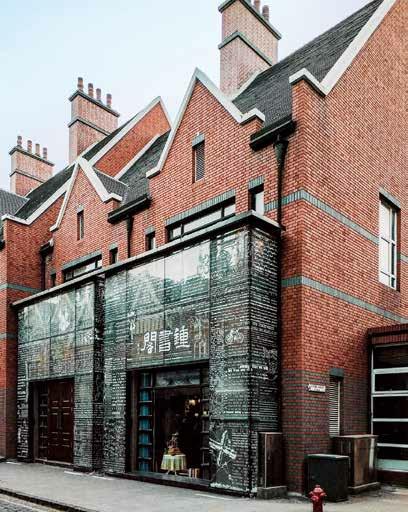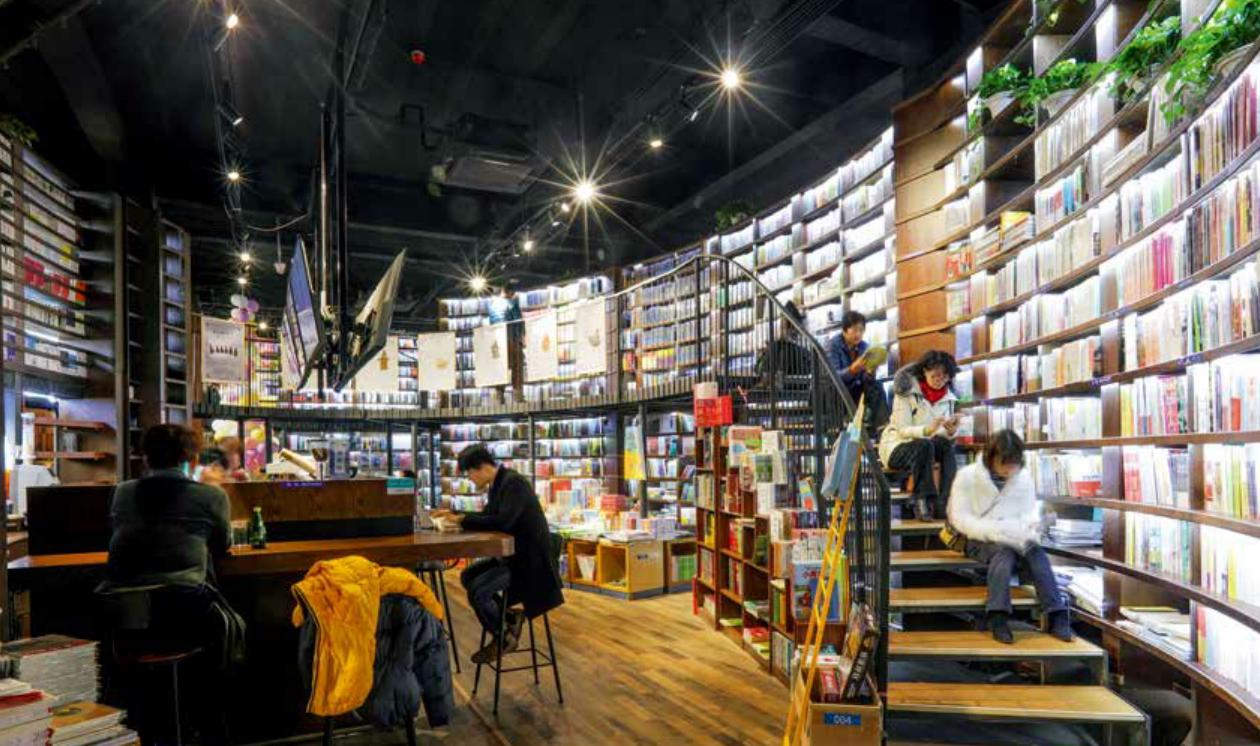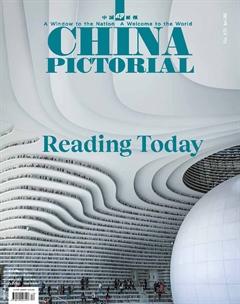Reading Today
by Zhou Xin


“You cant call Confucianism misleading, Much worth can be obtained from its reading. The best case is state governance improves, The worst case, only yourself is moved.”
A pamphlet of easy-to-understand poetry called Prodigy Poems was distributed to children learning to read in ancient China. Chinese culture has placed high importance on reading since ancient times. In ancient China, reading was closely linked to the imperial examination and the government positions it enabled. But in fact, it was even more meaningful. Ancient Chinese people also believed that reading was about improving oneself. As the poem asserts, even if reading doesnt improve the country, it will still improve an individual.
Although the pace of life is constantly accelerating these days, reading still plays an important role in Chinese life. April 23 this year will be marked as the 27th World Book Day. Changing times and advancement of technology are making methods of reading more diverse than ever before.
Ebb and Flow of Books
Xinhua Bookstores could be found throughout the country, and they were the main way to buy books as well as a bridgehead to protect authorized printing of copyrighted works. When you walked into any Xinhua Bookstore in the past, you would see light-colored marble floor tiles, white walls, square bookshelves, and readers combing through books between shelves. Back then, the bookstore did not provide seats, and the staff didnt allow readers to sit on the floor. In addition to Xinhua Bookstores, such a policy actually became standard in all bookshops throughout China.
At the turn of the 21st century, online bookstores such as 99read.com, Joy (later acquired by Amazon), and Dangdang.com emerged. Physical bookstores usually sold books at the full cover price, and online bookstores offered the same books at a 20 to 40 percent discount. Consumers could get perfectly printed authentic versions at the same price as pirated books without leaving home, so the old bookstore model was left without appeal.
However, the salad days of online bookstores didnt last long. With the popularization of large-screen mobile phones, tablets, and e-book readers, physical books themselves have faced severe challenges. Devices with electronic ink screens make reading in the digital age not only convenient, but also “healthy.”Improvement of the digital reading experience on mobile devices enables reading to happen anytime and anywhere. As for modern people, the mobile phone is already an extension of the body. Flourishing audiobook platforms have liberated exhausted eyes, so “reading”a book no longer requires eyes or even full attention.
In Beijings Panjiayuan Antique Market,second-hand book transactions are the same as they have always been except for the option to pay through a QR code. On the WeChat applet Duozhuayu (literally “catching more fish”), you can sell and buy used books with your phone. This app built a whole system for online trading of second-hand books thanks to the popularity of the mobile internet.
When the world of books is turned so upside down that “reading books”requires neither “reading” nor “books,”then what does the word “reading” even mean anymore?
Efficiency and Emotion
When words leave the paper, “books”are returning to their essence.
In remote antiquity, when language had emerged but writing had not yet taken shape, people relied on knots to record things. With the advancement of techniques, books in the forms of bamboo slips, sheepskins, and paper eventually developed. Paper is not fundamentally different than its predecessors. It remains a vehicle for recording human thought. Through reading, people acquire knowledge of the past, enrich their spiritual “experience,” and engage in brain exercise.
Different forms of digital reading platforms are also new types of carriers for knowledge. Based on their powerful functions, they can do many things that could not be imagined with previous carriers of text.
On an extremely crowded subway on weekdays, seeing passengers attempt to read with a mobile phone raised above their heads “in despair” is commonplace. In a noisy environment, many wear a headset to stay in the quiet world of a book. After reading a book on an electronic device, you can directly export or search the notes. You can see other readers comments. Users are allowed to view through their friends online bookshelves that are open. Thus, you can visit your friends “study rooms” at any time to learn from each other. In the era of mobile internet, portability and high efficiency have enabled communication between bibliophiles to be faster and easier than ever.
After all, the “sense of ceremony”that reading a physical book can offer is irreplaceable. Pleasure brought by ingenious binding, elegant paper, ink aroma, appealing layout, and the comfortable surrounding environment has become indispensable for readers. Gui Youguang (1507-1571), a scholar in the Ming Dynasty (1368-1644), described his study room “Xiangjixuan” with affectionate words: “On the fifteenth night of each lunar month, the bright moon lit up half the wall. When a gentle breeze arose, laurel leaves shimmered flecks of moonlight on the wall; it was pleasing to see the shadows dancing and hear the leaves rustling in the wind.” He integrated the act of reading with birds, laurel trees, the breeze, and the moon, shining light on the spiritual world of scholarly reading in those days. Such a world remains the ideal vision for almost every reader. Despite the numerous advantages of e-books, physical books remain loved by many.
Like a Paradise
“I have always imagined that Paradise will be a kind of library,” quipped Argentine writer Jorge Borges. For book lovers today, bookstores have the same spiritual function.
What can a bookstore do aside from putting books on shelves?
Upon entering Zhongshuge in“Thames Town” of Songjiang District, Shanghai, visitors are immediately surrounded by dark brown lacquered wooden bookshelves like a deep tunnel toward a treasure of knowledge. Bookshops like Zhongshuge have opened in many places across China including Wangfujing Street in Beijing and Tianfu Avenue in Chengdu. Zhongshuge already enjoys a national reputation as “the most beautiful bookstore.” In addition to Zhongshuge, many other bookstores with ingenious decoration and book selection such as PAGEONE and One-Way Street Library have become more and more popular as weekend activity destinations. Salons and discussions between authors and readers organized by many bookstores provide face-to-face communication opportunities. Cultural products and beverages such as coffee have now become necessities for most bookstores.
On a weekend afternoon, a reader may walk into a bookstore with bright windows and elegant decorations, pick a favorite book, order a cup of coffee, and find a comfortable seat to sit and read. Bookstores today seek to provide an ideal on-the-spot comprehensive sensory experience. For those who like to read, such is likely an ideal afternoon.
After reading or buying a book, exiting the shop releases the reader back into the bustling crowds. The experience seems as fleeting as last nights dream. Physical bookstores will never stop offering spiritual support for human beings.

